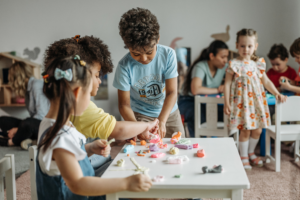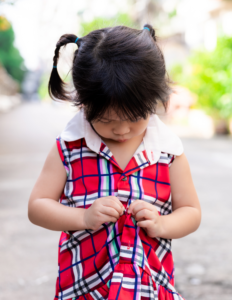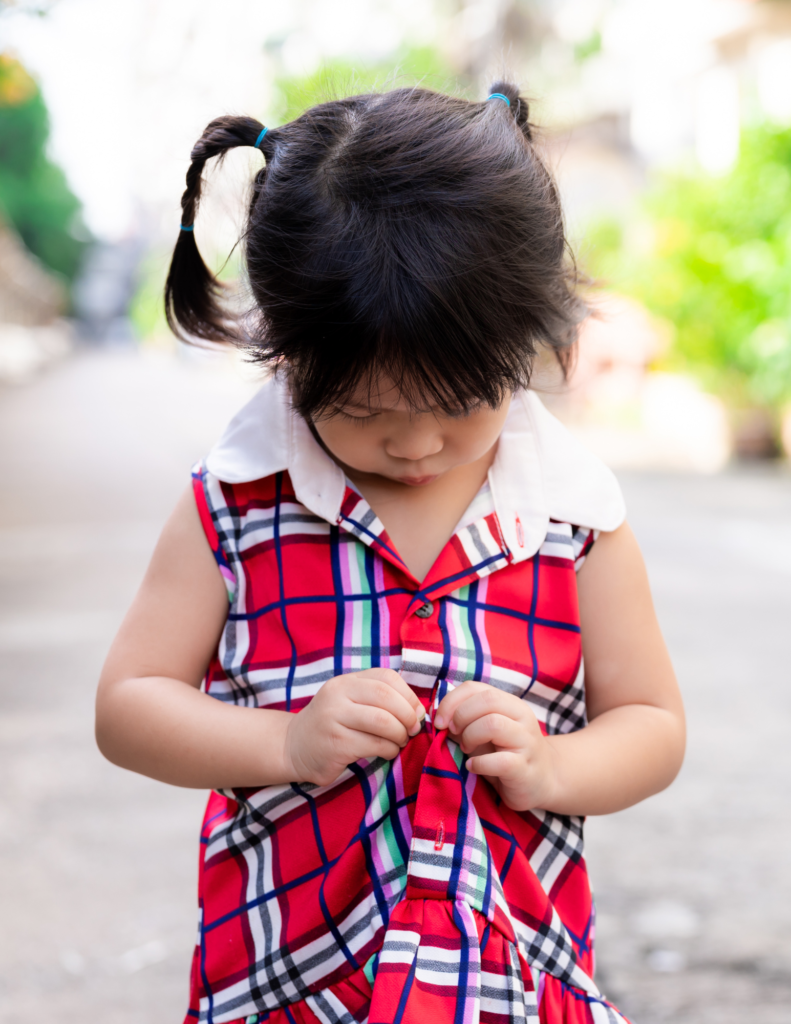February 12, 2023
This is the first of three follow-up articles to Kids Do Well if They Can that Mary O’Connell and I will write in the coming weeks. A dear friend and colleague of LifeWays, Mary has a non-profit farm education program and LifeWays Representative site at Paradise Farm in West Bend, where she and her colleagues provide outdoor, farm-based education to children and adults.

A couple of weeks ago, I wrote a blog post about the work of Ross Greene, and his simple motto that “Kids do well if they can.” Several of you wrote in, saying you resonated with the description of teachers experiencing challenges in their early childhood programs.
“Early childhood professionals are faced with a larger-than-ever number of children needing extra help. Veteran and new teachers and caregivers alike are feeling unprepared to handle the behavior challenges they’re experiencing daily. I frequently hear directors say, “We want to work with this child, but we have to consider the needs of all the other children in the classroom.” It seems that, for many children today, the demands of life in the early childhood program exceed their capacity to adapt. They cry or sulk, they kick or hit, they scream and tantrum. And their teachers lay on the natural (or sometimes quite unnatural) consequences to try to help them fall in line with the group. These consequences often don’t work. So, what do we do then?”
In the blog post I suggested we shift our point of view from “children do well when they want to” to “children do well when they can.” When we shift our gaze to assume that a child will do well if they can do well, our next question is, “What is causing children’s ‘unwellness’ in our program?” Ross Greene asserts that young children exhibit troublesome behaviors when the demands being placed on them exceed their ability to respond adaptively. You may think, “Well, I’m not demanding anything. I just want him to be able to play nicely with his friends and not throw things across the room!” For a young child (especially one who spent a good percentage of his formative years socially distancing due to a pandemic), spending several hours in a group of children away from home is a tall order.
How do we help the children who are not adapting well in our programs?
 Identify the unmet need or the skill not yet developed
Identify the unmet need or the skill not yet developed
We can begin by observing. We might find it hard to believe that a child’s challenging behaviors are highly predictable, believing instead that such behaviors occur out of the blue. But there are often patterns to challenging behaviors in children.
Here are some common patterns that can be associated with behavior challenges in early childhood programs:
- Difficulty during transition times between one activity and the next
- Falling apart while doing things that are challenging, such as getting ready to go outside or participating in circle time
- Difficulty expressing needs in words, leading to frustration and, ultimately, outbursts that seem extreme
Meeting the child’s needs and helping them develop skills
A child who acts out during transition times may be feeling uneasy, not sure of what comes next, and this can cause them to act out. Maintaining a simple, steady rhythm that is the same every day and doesn’t include unnecessary transitions can be helpful. This may mean simplifying your daily routine and not offering as many activities as you had planned.
 The child who experiences frustration when faced with a challenging task can be aided by encountering smaller doses of the job at hand. If getting all their outdoor gear on is too much, then offer a helping hand while giving them the chance to handle smaller parts of that process. If participating in circle time is too hard, perhaps they can watch from a nearby vantage point. If the entire group is having trouble with circle time, maybe it’s just too much for them right now. You can simplify it by gathering the group for a short game of Ring Around the Rosy and slowly build their capacity to participate in a longer circle time over many weeks. You want circle time to be something they look forward to, not something they dread.
The child who experiences frustration when faced with a challenging task can be aided by encountering smaller doses of the job at hand. If getting all their outdoor gear on is too much, then offer a helping hand while giving them the chance to handle smaller parts of that process. If participating in circle time is too hard, perhaps they can watch from a nearby vantage point. If the entire group is having trouble with circle time, maybe it’s just too much for them right now. You can simplify it by gathering the group for a short game of Ring Around the Rosy and slowly build their capacity to participate in a longer circle time over many weeks. You want circle time to be something they look forward to, not something they dread.
“Use your words” is a common refrain repeated by adults in early childhood programs. Many children who are experiencing language development delays (more common since the pandemic) do not have the verbal skills to calmly state their problem. Getting down to the child’s level and expressing what you think might be upsetting them can really help. “Are you upset because you were planning on taking that spoon to the kitchen and give it to Mr. Jim, but Olivia took it instead?” Child nods yes, and the tears start rolling. You give them a warm hug and reassure them that tomorrow you’ll be using the spoon again and they will be able to carry it to the kitchen then. Acknowledging children’s unmet needs goes a long way toward reassuring them and building a connection.
And that is the most important thing with young children, isn’t it? Connecting with them. We can get so excited about all the wonderful things we have planned for the children in our care – the stories, the songs, the painting, and the crafts. Many children today need time to play, opportunities to learn to be comfortable in a group setting, and plenty of moments of connection with you, their beloved adult. The other activities can come later, once the basics are well-established. Give yourself the grace and time to connect with the children. It will be time well spent.

So grateful for the continuing dialoge…It’s a HUGE topic and so worthwhile. Thank you !!